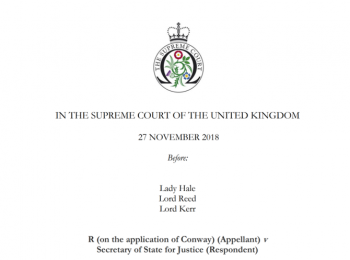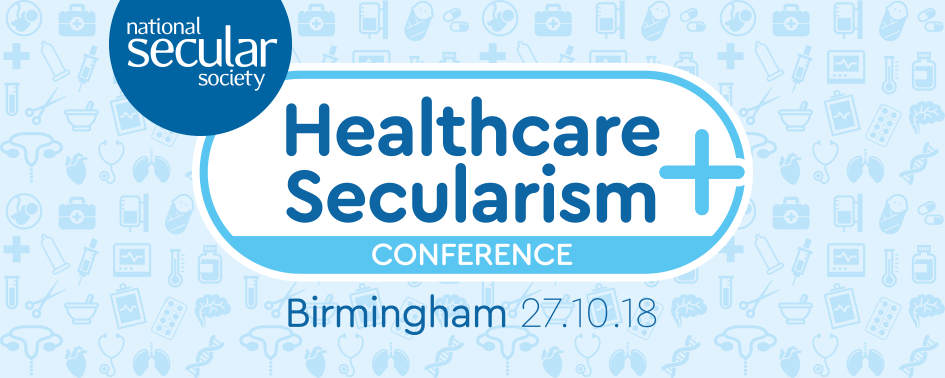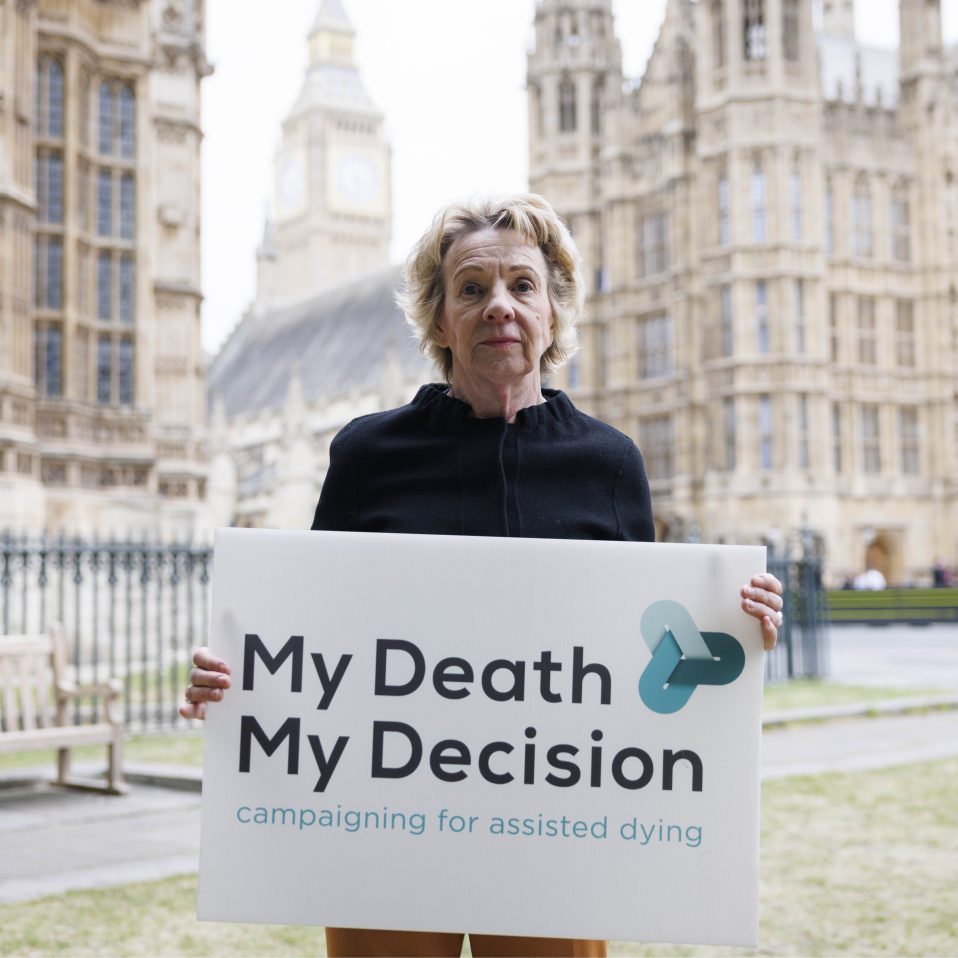Assisted Dying in the USA, A Good First Step But Room for Improvement
My Death, My Decision’s Coordinator, Phil Cheatle, discusses the recent documentary by Louis Theroux and the implications it raises for the US Oregon Model.
The BBC2 documentary by Louis Theroux, “Choosing Death”, which aired on Sunday 18th November 2018 and is available on iPlayer until May 2019, showed examples of the Oregon/California right to die law in action. The Oregon model, which is now available in seven US states, has proven itself to be an important first step for the right to die. However, as “Choosing Death” demonstrated, it leaves considerable room for improvement in how people can be helped to have a better and safer assisted death. Four apparent weaknesses of the Oregon model, highlighted in the programme, are discussed below.
1) Improved safety of handling lethal medication.
The Oregon law does not involve medical professionals in the supervision of lethal medication. Once accepted as meeting the legal criteria the patient is given a prescription for the medication which they keep at home. Leaving lethal medication in the unsupervised hands of non-medics seems potentially dangerous.
2) Improved counselling and support prior to using the prescribed medication.
The film showed the difficulty of reaching a decision on the exact timing of when to use the lethal medication. This will always be difficult, especially for those with close family who are coming to terms with an inevitable loss. What appeared to be missing was independent professional counselling that might help families reach a shared agreement. This was portrayed strongly in the case of Gus, a 74 year old man with stage 4 pancreatic cancer. Eventually he and his family reached a decision which balanced both Gus’s need not to suffer indefinitely and his family’s need not to lose a husband/father too soon. Both Gus and his family clearly wanted to take the feelings of the others into account.
MDMD believe that professional counselling should be available throughout the process of an assisted death, to help an individual and their families discuss concerns that often feel uncomfortable to talk about. For example, whilst there is concern that families may sometimes pressure vulnerable people to end their lives prematurely, “Choosing Death” demonstrated that the inverse is also true when families feel uncomfortable accepting that a loved one wants to die, and are coming to terms with the loss they will feel.
“Gus, in some cases I know patients in your situation, there is pressure from the family. I’m curious, are you all on the same page?” – Louis Theroux
“Well I would have gone probably a couple of weeks ago. But I told Reyanna [his daughter] in order to give her, her support, that I’d go through Chemo. And so that’s what I’m doing. But I’m afraid I’m going to wait too long for AB15 [California’s Right to Die Legislation]” If you get too sick, you can’t hold anything down. And one of the tenets of the whole programme, is that you’ve got to be able to take the medicine yourself. – Gus Thomasson
MDMD believe that a dying person needs to reach their own decision on timing, taking the views of their loved ones into consideration, but without feeling pressured. With appropriate training, good consultation should be able to ensure this happens. The eventual decision needs to be based on best medical advice on likely future quality of life, and a full exploration of all palliative care options as the situation develops. The family may need a facilitator to ensure that they understand and respect each others points of view, but do not pressure or coerce the dying person either to prolong or shorten life. Ideally these discussions should be built into the palliative care process, as happens in Belgium.
3) Without the option of a medically assisted death, those suffering from non-terminal medical condition, which reduce their quality of life permanently below the level they can accept, are forced to request unsafe alternatives.
The lack of professional counselling was particularly apparent in the case of Debra, a 65 year old, in a wheelchair, with early stage dementia-like symptoms. Her husband had died 5 months earlier, leaving her with no other close family. Debra’s condition was not covered by the Oregon-style legislation, so she had no professional medical assistance in her decision. Instead Debra contacted the Final Exit Network, (FEN), who provided two unregulated amateur “guides”¹. The guides seemed well-meaning and compassionate and provided verbal advice which helped Debra end her life herself, using equipment she purchased online.
Debra’s situation and death, demonstrates a significant failing in the Oregon care system. Her case raises a number of questions such as: Were all available choices adequately explored? Should people be driven to well-meaning amateurs for information on how to end their lives?
MDMD would like to see people like Debra have the option of a medically assisted death, but only after professional consultation and after it can be confidently said that:
- her decision was not the result of a curable depression
- her decision was not due to understandable but transient unhappiness due to her recent bereavement
- her decision was not something which would change if she received adequate support to adjust to her changed circumstances.
The Final Exit Network clearly provided some form of valuable consultation, in the absence of alternatives. However, end of life situations are invariably complex and require trained professional involvement to help individuals reach the decision that is right for them. It seems that the Oregon model could be improved in this respect by providing an assisted dying option for those like Debra. Whilst MDMD is sympathetic to Debra’s case and is grateful Debra could avoid a traumatic method of ending her life, her reliance upon the Final Exit Network demonstrates the need for a better law in Oregon.
4) Use of intravenous delivery of lethal medication to significantly reduce the time to die and increase the reliability of medically assisted deaths.
The final segment of the programme showed Gus and his family after Gus swallowed the lethal medication which he was prescribed. Although he appeared to be sleeping comfortably, the death took 7.5 hours.
To investigate the time that life-ending oral medication can take to end life MDMD contacted Dr. Erika Preisig, President of Lifecircle in Switzerland which offers medically assisted suicide to foreign nationals. She told MDMD that the longest duration of death by oral assisted dying she was aware of was 26 hours. (A case of pancreatic cancer where a patient can have a lot of stomach water (Ascites), which makes the uptake of the medication very slow.) Dr Preisig explained that at Lifecircle, whenever possible they use an intravenous method where the patient controls a valve to start the flow of the medication which will end their life. (It is required by Swiss law that the patient self-administers the lethal medication.) Dr Preisig told us that using this method the time taken to die is “always the same, 30 seconds to fall asleep, and 4 minutes to die. No coughing, no vomiting, no pain at all”. Dr Preisig has assisted 386 people to die using this method. MDMD conclude that this seems a far preferable method than that used in the USA.
Louis Theroux’s documentary raised important questions about the Oregon model. For over 20 years, Oregon has been taken as an example for legislation elsewhere, both within the USA and around the world. MDMD believe it is an important first step, but that several issues remain unresolved by the Oregon-style approach. It is important to discuss these issues and learn from not only the Oregon experience but also other countries such as Switzerland, Netherlands and Belgium in any future attempt at changing the UK law.
There is ongoing debate in both Oregon and Canada as to what improvements may form the next step, particularly regarding degenerative diseases like Debra appeared to have. MDMD watches with interest as this will inform what might one day happen in the UK.
¹Update March 2020: Final Exit Network, (FEN), have informed us that their volunteers are trained and include physicians, nurses, hospice workers and social workers. Anyone applying for their help undergoes a FEN evaluation process before being accepted for support. This was not apparent in the documentary so our reference to ‘amateur guides’ in point 3 is a little misleading. We are pleased to clarify that.








Recent Comments